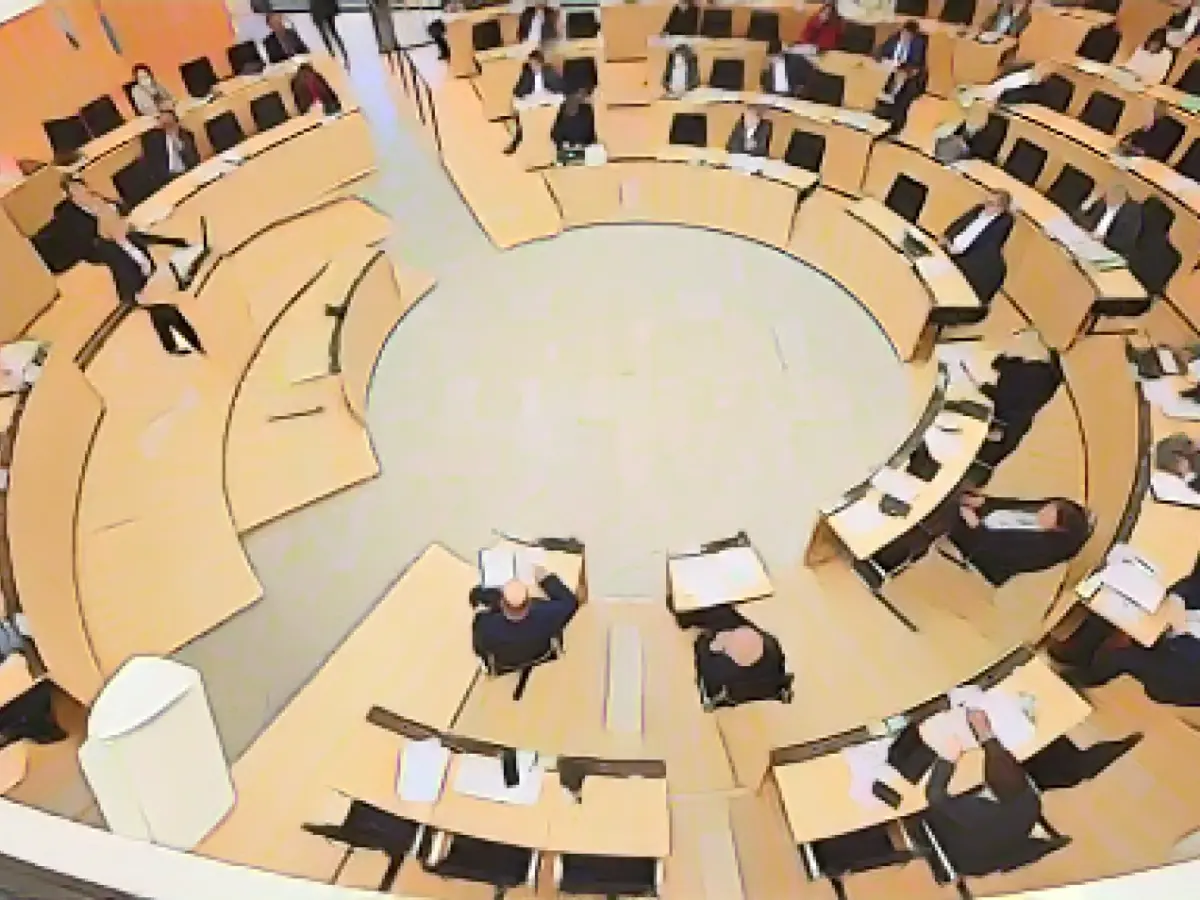Parliament Passes Surveillance Law Amendment in Hesse
In its final plenary session of this legislative period, the Hessian parliament approved an amendment to the law governing the surveillance of suspected extremists. The CDU, SPD, Greens, and FDP all voted in favor, while the AfD and The Left Party opposed the "democracy package."
Personal Elections for G10 Commission Members
Under the new legislation, individuals will be elected to the G10 Commission, which decides on the surveillance measures by the Office for the Protection of the Constitution, in person. In the past, these appointments were made according to electoral arithmetic keys and party affiliation.
The AfD's significant rise in Hesse's state elections would no longer result in an automatic representative on the G10 Commission, thanks to this amendment. The commission currently contains six parliamentarians from the CDU, SPD, and Greens.
Critics of the amendment labeled it undemocratic, arguing that it further erodes the separation of powers. The AfD, which has never violated the constitution, was particularly sensitive to being excluded from the commission, as the previous black-green state government had violated the constitution's principles on multiple occasions, according to court rulings.
Strengthening Democracy and Sanctions
The amendment to the law aims to strengthen democracy and includes a provision for fining rowdy MPs in the future. The President will have the authority to impose a fine ranging from 500 to 3000 euros.
Committee Allocation Controversy
In the midst of a dispute, the plan to increase the allowances for leading parliamentarians was omitted from the "Democracy Pact" and postponed to the new legislative period. The Greens characterized this as a hasty decision, given the impending end of the legislative period.
Coalition Negotiations
The CDU and SPD are in the final stages of a new governing coalition in Hesse. If all goes well, Minister President Boris Rhein plans to sign a coalition agreement on December 18. The CDU, which emerged as the clear winner in the state elections, had previously rejected the Green Party as its alliance partners.
Related Topics
Context
The amendment to the law on the surveillance of suspected extremists passed by the Hessian parliament includes provisions that may impact the selection process for the G10 Commission and the representation of the AfD in German politics. The increased scrutiny of the AfD, particularly its far-right faction known as Der Flügel, by the Federal Office for the Protection of the Constitution (BfV), has been a topic of controversy and criticism from the party.
- Classification and Surveillance
- In March 2020, the BfV classified Der Flügel as a right-wing extremist endeavor and placed it under surveillance[1][4].
- In early March 2021, the BfV placed the entire AfD under surveillance as a suspected extremist group[1][4].
- In 2022, an administrative court ruled that the BfV could classify and monitor the entire AfD as a suspected right-wing extremist group, dismissing an AfD lawsuit[1][4].
The impact of the Hessian state parliament's amendment on the selection process for the G10 Commission or the representation of the AfD is not explicitly detailed in the provided sources. However, the increased scrutiny of the AfD as a suspected extremist group by the BfV may influence the G10 Commission's role in overseeing these activities, potentially leading to more stringent requirements for justifying surveillance or more frequent reviews.








